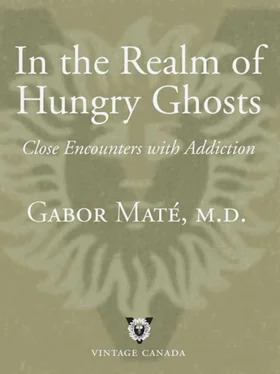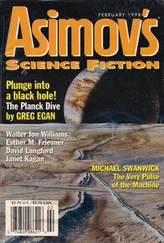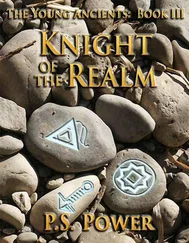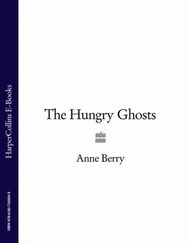Misplaced attachment to what cannot satiate the soul is not an error exclusive to addicts, but the common condition of mankind. It is this ubiquitous mind-state that leads to suffering and calls prophets, spiritual masters and great teachers into our midst. Our designated “addicts” march at the head of a long procession from which few of us ever step away.

For many people, the higher power concept need not be concerned with a deity or anything expressly spiritual. It simply means rising above their self-regarding ego, committing to serve something greater than their own immediate desires. I recall what a speaker at the AA meeting I attended had said. “As you study the Big Book and you serve people and help the community, your heart softens. That’s the greatest gift, a soft heart. I wouldn’t have believed it.”
Our material culture tries to explain even unselfishness as arising from selfish motives. It is often asserted, cynically, that people who act in kindly ways, without any benefit to themselves, are doing so only to feel good. Neuroscience does not support that view: the brain area that lights up as a person performs an altruistic act is not the circuitry activated by pleasure or by the anticipation of reward. According to a recent study, a key contributor to humane behaviour is the posterior superior temporal cortex (pSTC), a region at the back of the brain whose function includes awareness of other people’s emotional states. 3It seems that we are wired to be in tune with one another’s needs, which is one of the roots of empathy. “Perhaps altruism did not grow out of a warm-glow feeling of doing good for others, but out of the simple recognition that that thing over there is a person that has intentions and goals. And therefore, I might want to treat them like I might want them to treat myself,” said one of the researchers—Scott Huettel, Associate Professor of Psychology at Duke University Medical Center, in Durham, North Carolina. The golden rule may be inscribed in our brain circuits, not as a commandment but as an essential part of who we are.
There is a quality or drive innate in human beings that the Austrian psychiatrist Victor Frankl called our “search for meaning.” Meaning is found in pursuits that go beyond the self. In our own hearts most of us know that we experience the greatest satisfaction not when we receive or acquire something but when we make an authentic contribution to the well-being of others or to the social good, or when we create something original and beautiful or just something that represents a labour of love. It is no coincidence that addictions arise mostly in cultures that subjugate communal goals, time-honoured tradition and individual creativity to mass production and the accumulation of wealth. Addiction is one of the outcomes of the “existential vacuum,” the feeling of emptiness engendered when we place a supreme value on selfish attainments. “The drug scene,” wrote Frankl, “is one aspect of a more general mass phenomenon, namely the feeling of meaninglessness resulting from the frustration of our existential needs which in turn has become a universal phenomenon in our industrial societies.” 4For “drug scene” we can also read: “the gambling scene…the eating scene…the overwork scene” and many other addictive pursuits.
Human beings, in other words, do not live by bread alone. The higher power, if we wish not to think of it as God or as anything that even remotely smacks of religion, can still be found if we look past ourselves and find some meaningful relationship with the universe outside the confines of our egotistic needs. Judy, interviewed in Chapter 8, continues to live in the Downtown Eastside and is on methadone maintenance for her heroin habit but no longer injects or smokes cocaine. She has found new meaning in providing a service to others, sex trade workers who are still using. She helps keep them safe and offers a kind word and a supportive presence.
We have seen that addiction arises out of dislocation. The absence of meaning is yet another dislocation that we human beings, spiritual creatures that we are, cannot well endure. Meaning has to be defined and found in a personal way by each of us, but as one of Dr. Frankl’s Viennese colleagues, Dr. Alfried Längle, said in a recent Vancouver talk, “meaning arises only out of a dialogue with the world.” By her daily acts of kindness, Judy keeps herself in a dialogue that helps her transcend addiction.

While often expressed as a rational rejection of traditional religious belief, much of people’s resistance to the higher power concept is really the ego’s resistance to conscience and to spiritual awareness, to the part of us that recognizes truth and wants to honour it. The grasping ego fears its own annihilation in bowing to something greater, whether to “God” or to the needs of others or even to one’s own higher needs.
A patient of mine, a former leader (and, possibly, future leader) among his First Nation people, experienced that greater power—and himself as part of it—during a fast he conducted in prison. “This was my second time back in the federal system on a five-year sentence,” he recalled. “And what brought me back there was my addiction to substances. While I was in the reception centre I had a really hard time with it, going back having to face all the things that I said I would never have to face again. I went to Edmonton Max, and it was there that I had the most revealing thing come to me in my fast.
“It was on the third day, when I lit my smudge…I was fanning, fanning it with my hands and the feather. The smoke and the energy…And I felt all the life force through my pores, and that’s when I knew right there. Everything had a life. Alcohol. Everything…everything that came from mother earth. The leather…our clothes…what we eat and drink from the earth. Everything is alive. Everything comes alive and has a spirit. Alcohol and drugs have a spirit. When you don’t understand that, they have tremendous strength. They will beat you. But it’s powerful. It was here before you. Everything was here before you. That’s another thing that came to me…all these things that are here…were here before you. And they’re going to be here when I’m gone. So I’m not bringing nothing new to the table. The only thing new to the table is myself. I’m actually the learner. I’m the last in line to learn—to learn to live, to coexist with everything, to adapt to a bigger thing, to the landscape of my life.”
“Each carries within himself the all,” wrote Joseph Campbell, “therefore it may be sought and discovered within.” According to this seminal American writer and lecturer, all heroic myths are prototypes of what is the greatest journey of all, the quest for spiritual truth inside the soul. There is only one story, Campbell showed, only one quest, one adventure, what he called “the monomyth.” And there is only one hero, though he or she may appear at different times in different cultures in a thousand guises. The hero is the human being who dares descend into the darkest depths of the unconscious—to the very source of our creative power—and there confronts the monsters thrown up by the fright-stricken infant psyche. As the hero pursues the journey, the phantoms and dragons all vanish or lose power or even become allies.
The psyche of the addict is populated by demons more frightful than those many other people have to face, but if she undertakes the quest, she’ll find they are no more real and no more powerful. The reward at journey’s end, the treasure the hero has been seeking, is our essential nature. The aim, Campbell asserted, is “to realize that one is that essence; then one is free to wander as the essence in the world. Furthermore, the world too is of that essence. The essence of oneself and the essence of the world: these two are one.” 5
Читать дальше













